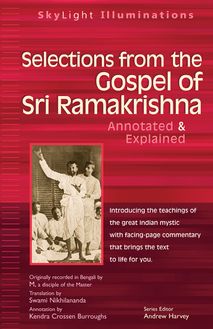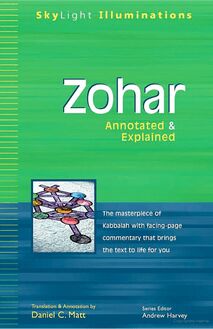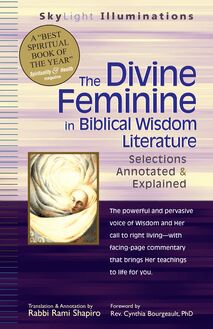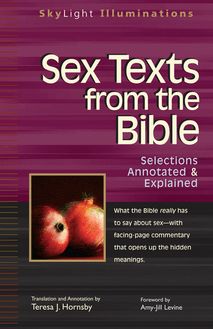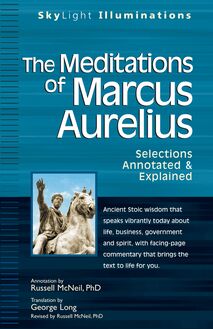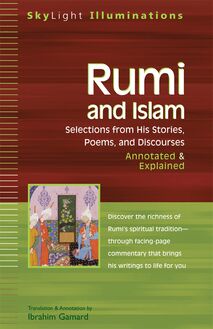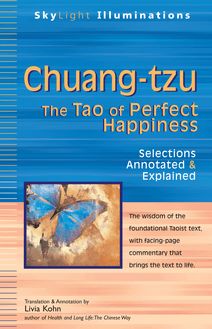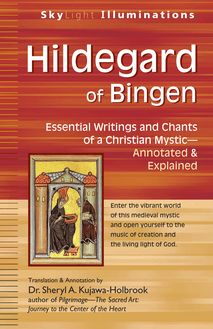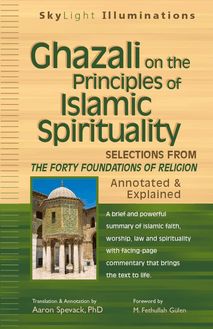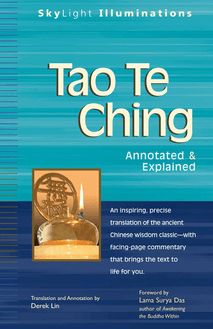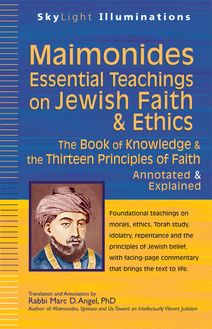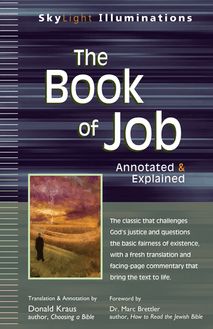Sex Texts from the Bible , livre ebook
109
pages
English
Ebooks
2012
Vous pourrez modifier la taille du texte de cet ouvrage
Obtenez un accès à la bibliothèque pour le consulter en ligne En savoir plus
Découvre YouScribe en t'inscrivant gratuitement
Découvre YouScribe en t'inscrivant gratuitement
109
pages
English
Ebooks
2012
Vous pourrez modifier la taille du texte de cet ouvrage
Obtenez un accès à la bibliothèque pour le consulter en ligne En savoir plus
Publié par
Date de parution
28 juin 2012
Nombre de lectures
2
EAN13
9781594734649
Langue
English
A fresh look at the Bible reveals a richness of insight about sex and sexuality
For some people, the Bible’s perspectives on sex may seem too one-dimensional or antiquated to apply to modern-day life. Others may hold up the Bible as the ultimate moral guideline when it comes to sex and human sexuality. A close reading of the Bible reveals that while its rules and lessons about sex and sexuality may not be applicable to all people at all times, this sacred scripture does offer surprising insight into our modern sexual lives.
This intriguing guide demystifies the Bible, synthesizing basic historical, theological, literary and linguistic ideas about the Bible’s texts with our modern attitudes about sex. Thoughtful new translation and provocative commentary bridge the divide between biblical authority and our present-day views on gender roles, marriage, sexual orientation, virginity, lust and sexual pleasure. Drawing from Hebrew and Christian scripture, it examines the ways that the language of religion and the language of sex intersect.
Now you can discover what the Bible says about sex with no previous background in theology or religious history. This SkyLight Illuminations edition offers insightful and engaging commentary that explains the historical context and religious worldviews of those who wrote the Bible as well as the role their perspectives play in current social debates. You will be encouraged to form your own opinion about what the Bible has to say about sex and gain a deeper understanding of your own sexuality.
Publié par
Date de parution
28 juin 2012
Nombre de lectures
2
EAN13
9781594734649
Langue
English
Contents
Foreword
Acknowledgments
Sex and the Bible: Why You Should Care
A Note on the Translation
Marriage and Family Life
1. Euphemisms for Sex and Genitals
Annotations
2. Dating
Annotations
3. Marriage
Annotations
4. Divorce
Annotations
5. Cheating on Your Spouse
Annotations
6. Interracial Marriage
Annotations
7. Intergenerational Relationships
Annotations
8. Multiple Wives and Husbands
Annotations
9. Lust, Passion, and Desire
Annotations
10. Sexual Orientation
Annotations
11. Celibacy and Eunuchs
Annotations
12. Gender Roles and Cross-Dressing
Annotations
13. Masturbation
Annotations
14. Nakedness
Annotations
15. Sexually Transmitted Disease and Genital Abnormality
Annotations
16. Illegitimate Children
Annotations
Women s Sexuality
17. Virginity
Annotations
18. Prostitution
Annotations
19. Menstruation
Annotations
20. Contraception, Abortion, and Miscarriage
Annotations
Destructive Sexuality
21. Sexual Violence, Rape,and Domestic Violence
Annotations
22. Incest
Annotations
23. Bestiality
Annotations
Sexual Joy and Delight
24. Sexual Joy and Delight
Annotations
Notes
Suggestions for Further Reading
About the Authors
About SkyLight Illuminations
Copyright
Also Available
About SkyLight Paths
Foreword
Amy-Jill Levine
With biblical illiteracy reaching an all-time high and sanctimonious polemic achieving new depths of disgust, finally we have a collection that cuts through the ignorance and odium to explain not only what the Bible says about sex, but also why . Because it attends to diverse views, historical contexts, and linguistic nuance, this collection disarms the Bible from its crass use in today s culture wars and instead invites you to develop your own interpretations. For this service, Teresa Hornsby deserves the gratitude of all readers of the Bible.
People of good will, theological concern, and personal integrity will find themselves on the opposite sides of many of the issues that fall, directly or elusively, under the rubric of the Bible and sexuality. This does not necessarily mean that one view is right and the other wrong. It does mean, however, we should not demonize those whose interpretations differ from our own.
All readers interpret, and interpretation is necessary to make sense of the Bible. For example, we must distinguish between literal injunction and metaphor or hyperbole. Is if your right hand causes you to sin, cut it off and throw it away (Matthew 5:30a, part of the Sermon on the Mount) imperative or exaggeration? Is it a condemnation of a particular behavior, such as envy or stealing or masturbation or, less likely although I ve heard this one as well, cracking your knuckles?
At times, we decide a text is outdated or contrary to divine will; such is the case with 1 Peter 2:18, Slaves, accept the authority of your masters with all deference, not only those who are kind and gentle but also those who are harsh. Passages exhorting such obedience are also part of the discussion of the Bible and sexuality, since the slave s body belonged to the master and so could be, and was, used for sexual purposes.
At other times, we ignore the primary meaning. First Timothy 2:15 states that women gain their salvation in child bearing; most churches do not teach this today, or they change the translation to suggest the author is talking about the birth of one particular child, namely, Jesus. No major church today insists that women must procreate in order to be saved. In like manner, Jesus mentions that You have heard that it was said, An eye for an eye and a tooth for a tooth (Matthew 5:38, citing Exodus 21:24; Leviticus 24:20; Deuteronomy 19:21). Indeed, the people had, but people at the time did not take the injunction literally. Rather, monetary compensation substituted for physical mutilation.
Once we determine the best meaning of a statement, our need to interpret is not complete. We must ask: Is the statement under discussion addressed to everyone or one group or one person? Is it good for all time, or is it historically and culturally contingent? For example, when the first humans are told, in Genesis 1, be fruitful and multiply and fill the earth and subdue it, does the commandment hold for men and women both, or just for men (a debate among some ancient Rabbis)? What about overpopulation? What about those who are infertile? Can one be fruitful and multiply through means other than procreation, such as preaching the gospel, or working for organizations like Doctors without Borders? Similarly, when Paul tells women in Corinth that they should remain silent (see 1 Corinthians 14:33b-36), is he speaking only to women in Corinth, or just to married women in Corinth, or to all women everywhere? Why would we, today, in Nashville or New York, be reading mail addressed to a church in Greece?
One way of sorting through diverse texts and diverse interpretations is to find a touchstone of truth. That touchstone might be what the Gospels refer to as the Greatest Commandment, taken from Deuteronomy 6 and Leviticus 19. Matthew 22:36-40 has an interlocutor ask Jesus: Teacher, which commandment in the Law is the Greatest? Jesus responds, You shall love the Lord your God with all your heart and with all your soul, and with all your mind. This is the greatest and first commandment. And the second is like it: you shall love your neighbor as yourself. For others, the touchstone is the prophet Micah s advice that all the Lord requires is to do justice, and to love kindness, and to walk humbly with your God (Micah 6:8). Or that touchstone may be our own hearts and minds, or the teachings of our particular religious tradition.
How then should we read these texts that Teresa Hornsby has assembled? We might follow Matthew s description of the scribe trained for the kingdom of heaven -the one who takes out of his treasure box (the Greek is thesaurus ) both what is old and what is new (Matthew 13:52). Look to the past, to the Scriptures, but also look to the future. Do not dismiss history or tradition, science or personal experience. Moreover, theologically speaking, communication between heaven and earth does not stop with the close of the biblical canon. To the contrary, each tradition that holds these texts sacred has a sense of ongoing revelation-through the Holy Spirit, through the teachers of the community, through the communion of the individual reader and the Scriptures. If we restrict our religious understanding to the pages of the Bible, we are engaging in what is called bibliolatry: we have turned the Bible into an idol, rather than allowed it to remain a living text that speaks anew to each generation.
Finally, I suggest that we look at the Bible not as an answer book to life s questions. We might see it instead as a question book-a book that raises the seminal (or, if you prefer, ovarial-metaphors do say a lot about us) questions about life, our place in it, and our relationship to that which is greater than our individual selves.
Acknowledgments
Writing this book was a joy. I looked forward to opening these pages each day and writing down all the things I have learned, thought about, and taught during the last decade. I have published many articles and book chapters that were written for other scholars in my field, and I often wondered if anyone ever really read them. And if so, did they matter? This book matters. It encases at least a hundred years of Bible scholarship about passages that have shaped some of our modern attitudes about sex. So, as these are the acknowledgments, I would like to acknowledge two fears.
My first fear is that my academic colleagues will dismiss this book because of its simplicity. I make complicated theories accessible to everyone (it s what I do in my classes every day). I know from my academic training that for every statement I make about historical context, authorial intent, or word meanings, there are at least four valid and sound arguments to the contrary. For this book, I explored the possibilities and chose the one or two that seem most plausible and most supported.
My second fear is that my Ozark neighbors will find the book to be too light, too funny, or too disrespectful. I love the Bible: its history, its stories, and the hope it gives. I am also aware of the damage it can bring. It s like a knife: in the hands of a killer it s a weapon; in the hands of a surgeon it s a lifesaver. I don t want this book to appear to anyone as an attack on the Bible. It is a sincere effort to read the Bible in a way that clarifies and makes relevant and accessible some crucial biblical passages.
I want to thank my students. They are the ones who ask the questions that this book attempts to answer. The students know how important their questions are and that they must be answered. What the Bible has to say about sex matters on a personal level, a national level, and a global level. Historically laws prohibiting certain couplings, for example, interracial marriage, were often biblically based. Today, legislative decisions about gay marriage or about funding sexually related programs, such as abstinence education and international and domestic family planning, often rely heavily on biblically based arguments. My students know this and we talk about it. We talk about it a lot. So, I thank them for making me always think about the intersection of politics, sex, and the Bible. They force me to always keep my work current and relevant.
I also thank my best friends and colleagues, Dr. Regina Waters and Dr. Steve Mullins, for many, many socially lubricated yet highly intellectual conversations. I find their feedback on this material invaluable. I have also had the very best Bible professor, critical thinker, and friend as my mentor since 1996-Amy-Jill Levine. Nothing I do could have happened without her.
I have wonderful support from friends and collea
